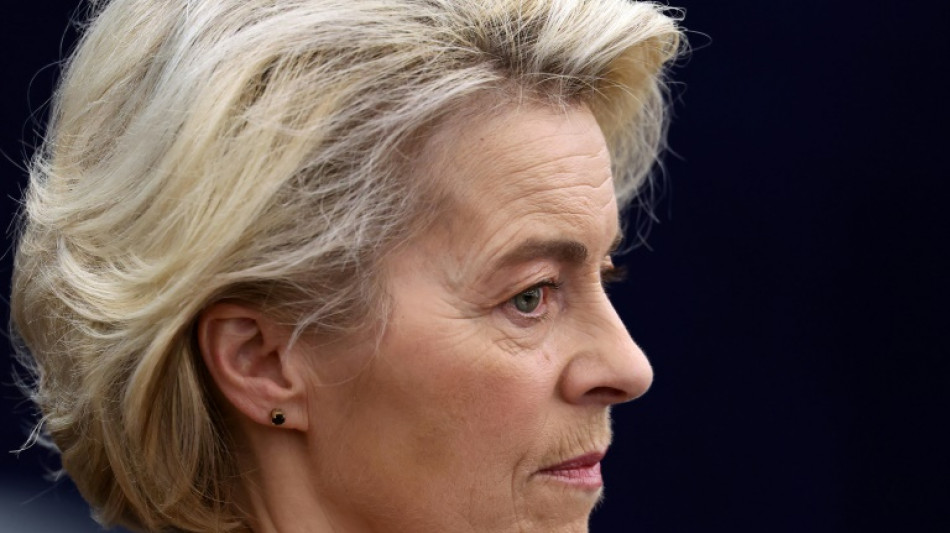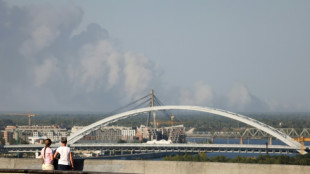

EU unveils 2040 climate goal under pressure from farmer protests
The European Union on Tuesday unveils its climate targets for 2040 and a roadmap for the next stage of its energy transition, with the bloc reeling from a farmer revolt against green reforms just months before European elections.
In a sign of how politically fraught the issue has become, European Commission chief Ursula von der Leyen gave key ground to the farmer movement on Tuesday by deciding to bury a plan to halve chemical pesticide use by the end of this decade.
The commission's original proposal "has become a symbol of polarisation", she acknowledged to the European Parliament, noting that the legislation had stalled due to divisions between EU lawmakers and member countries.
The concession, made hours before the 2040 climate announcement, came as farmers converged outside the parliament building in another protest over shrinking incomes and rising production costs.
The 27-nation European Union has already committed to a 55-percent cut in greenhouse gas emissions by 2030, as it seeks to become carbon neutral by 2050.
For the next milestone, 2040, working documents suggest the European Commission will aim for a drop of 90 percent, compared to 1990 levels.
But this time Brussels has to factor in growing discontent -- illustrated by the snowballing farmer protests of recent weeks -- over the social and economic impact of its much-vaunted Green Deal.
Far-right and anti-establishment parties have latched onto the farmers' movement and are predicted to make big gains in June elections to choose the members of the next EU assembly.
That vote will also lead to a new commission late this year. Von der Leyen has not yet said whether she intends to seek a new mandate at its helm.
There is a vocal backlash from some industries to the bloc's climate policies and several national leaders are now calling for a "pause" in new environmental rules.
The EU's climate commissioner, Wopke Hoekstra, last month warned the bloc needed to stand by its climate ambition while "making sure our businesses stay competitive".
- 'Leave no one behind'-
Striking that balance is at the heart of a joint letter to Brussels, sent by 11 states including France, Germany and Spain, and seen by AFP.
Together they urge the commission to set an "ambitious EU climate target" for 2040.
But the states also call for a "fair and just transition" that should "leave no-one behind, especially the most vulnerable citizens".
The targets laid out on Tuesday will be a simple recommendation.
They will be accompanied by new post-2030 climate projections the commission was required to produce within six months of December's UN climate negotiations (COP28).
The next European Commission will be tasked with turning the outline into proposed legislation ahead of next year's international climate summit (COP30).
The bloc's 2040 targets are expected to rely in part on the capture and storage of ambitious volumes of carbon dioxide -- incensing climate campaigners who criticise the technologies as untested and want to see gross emissions-cut pledges instead.
Even so, the plan would require a sizeable effort from every sector of the economy -- from power generation to farming, which accounts for 11 percent of EU greenhouse gas emissions.
- 'Very ambitious' -
Some of the strongest resistance to tougher environmental action comes from the centre-right European People's Party (EPP), from which von der Leyen hails.
The EPP's Peter Liese says a more cautious stance is justified.
"It's easy to fix a figure," he said, but as the bloc has been implementing its existing 2030 target, "we see more and more how ambitious it is".
Liese considers a 90-percent emissions cut to be a "very ambitious" target for 2040 and stresses the need for "the right conditions, the right policy framework".
Elisa Giannelli, of the E3G climate advocacy group, urged the EU to keep the social impact of its climate policies front of mind.
"Getting this wrong," she said, "would allow conservative and populist voices to set the direction of the next steps."
The United Nations climate change organisation said in November the world was not acting with sufficient urgency to curb greenhouse gas emissions and thus limit global heating to 1.5 degrees Celsius above pre-industrial emissions.
With temperatures soaring and 2023 expected to be recorded as the warmest year so far in human history, scientists say the pressure on world leaders to curb planet-heating greenhouse gas pollution has never been more urgent.
O.Escareno--LGdM



